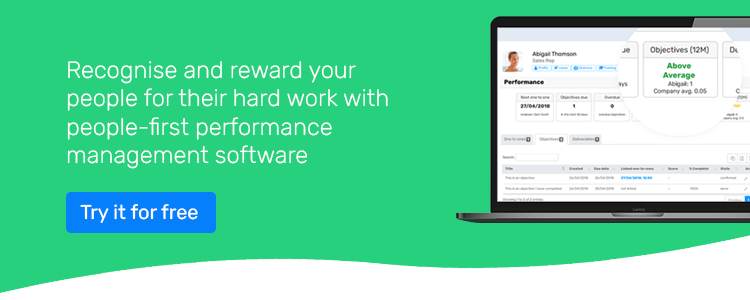If someone asked you to name the fastest-growing workforce demographic, chances are that you wouldn’t guess at menopausal women. But with 8 out of 10 menopausal women in work, it's a group no employer can (or should) ignore.
Menopause is a natural part of a woman's life, but it can also bring significant challenges. As more experienced women in their 40s, 50s and 60s continue to shape the workplace, it’s important to recognise how this transition affects people and the support they might need at work.
And with the 2024/2025 updates to the Employment Rights Bill, further support and protection for employees experiencing menopause is becoming mandatory for many businesses.
This blog explores how employers can offer meaningful support, meet legal obligations, and build a more inclusive, understanding culture. We'll also break down the legal updates and what they mean for how menopause should be supported at work.
In this blog, we cover the following areas:
- What is the menopause?
- What are the symptoms of menopause?
- Menopause and mental health
- Time off work for menopause symptoms
- Menopause support and the legal requirements
- How does the 2024/2025 Employment Rights Bill impact menopause at work?
- How employers can support staff experiencing menopause in the workplace
- Helpful resources
What is the menopause?
The NHS defines menopause as the point when those who menstruate stop having their period due to lower hormone levels and can no longer get pregnant naturally.
It typically affects women between the ages of 45 and 55, but around 1% experience early menopause before 40. The menopause can also be triggered by some medical treatments or surgeries.
The average age is 51, and symptoms can last up to 10 years. The years leading up to it are known as the perimenopause - a stage that brings its own set of challenges, often referred to as the menopause transition.
What are the symptoms of the menopause?
Menopause symptoms aren’t just physical. They can affect mental health, relationships, and job performance. Some are well-known, like hot flushes and mood swings. Others are less visible but just as disruptive:
-
Anxiety
-
‘Brain fog’ or memory issues
-
Poor concentration
-
Sleep problems
-
Low mood or depression
-
Headaches or migraines
-
Muscle or joint pain
-
Heart palpitations
-
Recurrent urinary tract infections (UTIs)
-
Weight gain
Many women don’t immediately link these symptoms to the menopause, which can lead to misdiagnosis or misunderstanding.
And it’s not just about feeling uncomfortable - menopausal symptoms can have a significant impact on someone’s ability to do their job. The Fawcett Society found that one in ten women have left a job due to menopausal symptoms. That’s a loss of talent that could be prevented with the right support.
Menopause and mental health
Menopause doesn’t just affect the body - it can take a real toll on how people feel day-to-day. Dealing with ongoing physical and psychological symptoms while trying to carry on as normal can be exhausting.
Symptoms such as mood swings, night sweats, memory issues and poor sleep can have a serious impact on mental wellbeing, sometimes leading to anxiety or depression.
For many, it can feel easier to stay quiet, especially if they’re unsure how their struggles will be received. But suffering in silence isn’t the answer, and it shouldn’t be the norm.
If someone is struggling with menopause at work, you can point them to organisations like Mental Health UK who offer useful resources, and encourage them to seek professional medical help from a GP.
But creating a truly supportive workplace environment means more than just signposting. It’s about raising awareness and building a culture where people feel safe, understood and able to speak openly about what they’re going through - without fear of judgement or stigma
Time off work for menopause symptoms
In the UK, employees can be signed off work due to menopause symptoms if those symptoms are having a significant negative impact on their physical or mental health.
A GP can issue a fit note (previously known as a sick note), just as they would for any other health condition. This means that severe menopause symptoms are a valid and acceptable reason for sickness absence at work.
Menopause support and the legal requirements
For a long time, menopause has been indirectly covered by the Health and Safety at Work Act 1974, which requires employers to provide safe and suitable working conditions for all employees, including those experiencing menopausal symptoms. But it wasn't until 2022, when the Rooney v Leicester City Council case brought menopause into the spotlight of employment law that we started to see change in the legal requirements around menopause at work.
In this case, Ms Rooney, a social worker, was experiencing menopausal symptoms and felt unsupported by her employer. The Employment Appeal Tribunal found that the organisation had failed to treat her symptoms with the seriousness they deserved, ultimately amounting to discrimination.
The case confirmed that, depending on the circumstances, menopause symptoms can meet the definition of a disability under the Equality Act 2010. This set an important legal precedent and sent a clear message: ignoring or dismissing menopause in the workplace is no longer acceptable.
How does the 2024/2025 Employment Rights Bill impact menopause at work?
Building on the progress made, the 2024/2025 Employment Rights Bill has strengthened protections and introduced clearer responsibilities for employers.
From 2026: Businesses with more than 250 employees will be encouraged to voluntarily publish a Menopause Action Plan as part of their broader gender equality responsibilities.
From 2027: This will become a legal requirement.
These changes signal a real shift in how menopause is viewed in the world of work and reflect the growing recognition that menopause in the workplace is an issue that deserves attention, care and action.
How employers can support employees experiencing menopause in the workplace
Creating a supportive environment means tackling the taboo of menopause in the workplace and talking openly. Here are five ways to help:
1. Start the conversation
Open dialogue is key to changing the culture around menopause at work. Run awareness sessions or team discussions to help normalise the topic and encourage employees to talk about what they need.
2. Equip your managers
Give line managers tools and training to handle these conversations with empathy. This CIPD guide is a great place to start. Educated, supportive managers are vital in helping women feel heard and supported.
3. Offer flexibility
Flexible working, remote options or regular breaks can help ease the day-to-day impact of menopause. Workplace adjustments like cooler workspaces or easier access to toilet facilities are simple ways to support women and others experiencing symptoms.
4. Create or review your menopause policy
While a dedicated menopause policy isn’t essential for every organisation, having one helps embed best practice and can protect you legally. It’s also a great way to show you’re committed to supporting employees experiencing menopause symptoms and offering reasonable adjustments where needed.
Need help creating one? Connect with one of our trusted Breathe partners – expert HR consultants who can support you with tailoring and implementing a policy that works for your business.
5. Lead from the top
Senior leaders play a key role in fostering an open, inclusive culture. When leaders talk about menopause openly and advocate for support, it sets the tone across the business and empowers others to do the same.
Helpful resources
Looking for further support? These trusted organisations offer practical advice, legal guidance and training tools:
-
CIPD Menopause Manifesto – policy recommendations and workplace advice
-
ACAS Menopause at Work Guide – symptoms, legal responsibilities and how to support staff
-
NHS Employers – detailed guidance on workplace improvements and further resources
Supporting employees through the menopause is fast becoming a legal expectation, and vital to building an inclusive culture, where you can retain experienced team members.
By reviewing your policies and understanding how menopause affects your people, you'll be better placed to offer the kind of support that helps everyone feel valued, understood and able to thrive at work.

Author: Laura Sands
Laura is a writer who enjoys getting into the detail of subjects and sharing that knowledge with snappy, interesting content. When not typing away, she enjoys walks in the woods and curling up with a good book and mug of something hot.




